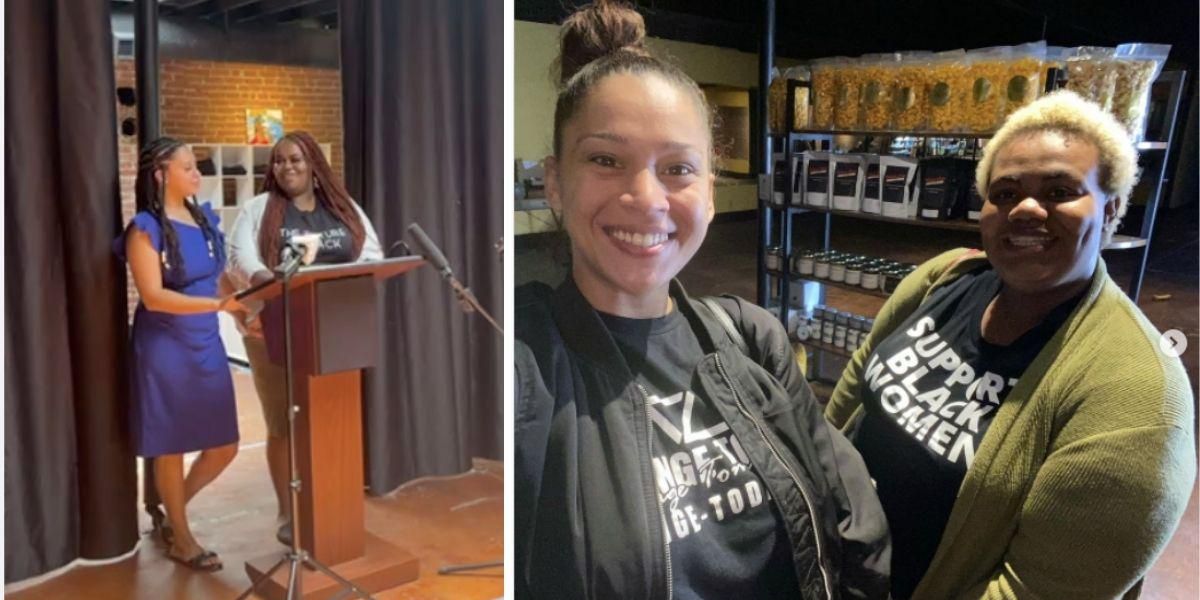
The non-profit group Change Today, Change Tomorrow got a surprise six-figure donation this week, with a heartfelt message to go along with it.
According to NPR, a white descendant of a Kentucky man who enslaved six people has donated a large portion of their family’s inheritance to the organization, which helps Black and marginalized communities in Kentucky, as a form of reparations. The anonymous donor sent a written statement along with the money, explaining that they had recently received the inheritance on their 25th birthday and began looking into the family history to see where the money came from. That search led to the discovery that their great-grandfather had enslaved six Black people in Bourbon County, Kentucky.
“He inflicted the trauma and violence of slavery on six people for his own monetary gain,” the donor wrote, “and did not even bother to record their names. Although no amount of money could ever right that wrong, their descendants deserve repayment for what was taken.”
The donor is a graduate student who lives in the South but has never lived in Kentucky. Since the donor couldn’t track down specific descendants as recipients for the reparations, they decided to donate to an organization that helps Black Americans in Kentucky in general.
Nannie Grace Croney, deputy director of Change Today, Change Tomorrow, said in a press release that the donor was “aware of how hoarding wealth is a huge contributing factor of inequity in this country, they decided that they should give most of it away.”
The donor also explained in their statement why they chose to remain anonymous.
“As white people we all unfairly benefit from racism,” they wrote. “We have to be willing to part with what was stolen, and do so without expectations of praise or control over how the money will be spent.”
The donor also said it was their first payment of reparations, but would not be the last.
The leaders of Change Today, Change Tomorrow were almost in disbelief when they received the message from the donor, until the money arrived by wire.
Andreana Bridges, an administrative associate at the nonprofit, told NPR, “We are very grateful on one hand. But on the other hand, we understand that the work that we do requires this type of investment in order to be sustainable.”
Bridges said the money will be used for the people the organization serves, who are mostly Black and low-income. “We don’t have the luxury to kind of just sit on it,” she said, “so it’s literally money that’s going to go right back into the community.”
The idea behind reparations is that the enslavement and legal oppression of Black Americans has had a lasting economic impact on the Black community, directly preventing the creation and passing down of generational wealth for many. “Reparations” refers to money or other economic settlements meant to repair that damage. Some also see reparations as a repayment of a debt owed to the descendants of those whose labor was stolen to enrich enslavers—and the U.S. in general—for generations.
As Trevor Noah points out, the bigger conversation about reparations is one that Black Americans need to have with the U.S. government. But more and more individuals, churches, and organizations are recognizing how they have benefitted from the historical oppression of Black people and making moves toward reparations themselves. The “who” and “how” questions are always tricky to navigate, but considering how long and how egregiously Black Americans were had economic opportunity deliberately withheld from them (not just through slavery, but through Black Codes, Jim Crow laws, redlining, etc. that followed) the reparation question is worth exploring.
This anonymous donor’s reparations offering is just one example of how it can be done.
